
Carpet sharks are sharks classified in the order Orectolobiformes. Sometimes the common name "carpet shark" is used interchangeably with "wobbegong", which is the common name of sharks in the family Orectolobidae. Carpet sharks have five gill slits, two spineless dorsal fins, and a small mouth that does not extend past the eyes. Many species have barbels.

Chromis is a genus of fish in the family Pomacentridae. While the term damselfish describes a group of marine fish including more than one genus, most damselfish are in the genus Chromis. These fish are popular aquarium pets due to their small size, tolerance for poor water quality, and bright colors, though their lifespans tend to be shorter than other fish.

The Hemiscylliidae are a family of sharks in the order Orectolobiformes, commonly known as longtail carpet sharks and sometimes as bamboo sharks. They are found in shallow waters of the tropical Indo-Pacific.

Chrysiptera is a genus of damselfish in the family Pomacentridae.
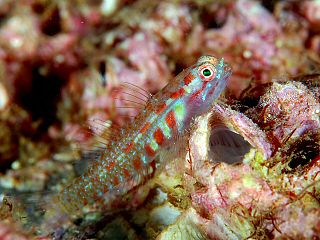
Eviota is a genus of fish in the family Gobiidae, commonly as dwarfgobies found in the Indo-Pacific region, where it is distributed from Japan to Australia and from Africa to Pitcairn Island. Species are mainly associated with coral reefs. Many of these fish are short-lived, with life cycles as brief as 3.5 weeks in the tropics. Some species are hermaphrodites and some representatives live symbiotically among the tentacles of the mushroom coral.

Acentrogobius is a genus of gobies native to marine, fresh and brackish waters of the coasts of the Indian Ocean and the western Pacific Ocean.

Paracheilinus is a genus of flasher wrasses, native to the Indian Ocean and the western Pacific Ocean.
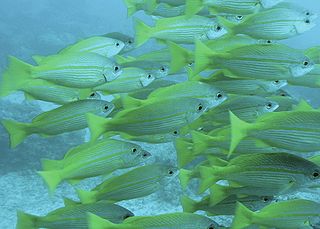
Lutjanus is a genus of marine ray-finned fish, snappers belonging to the family Lutjanidae. They are found in the Atlantic, Indian, and Pacific Oceans. They are predatory fish usually found in tropical and subtropical reefs, and mangrove forests. This genus also includes two species that only occur in fresh and brackish waters.

Pseudotrichonotus is a genus of fish in the family Pseudotrichonotidae native to the Indian and Pacific Ocean. This genus is the only member of its family.

Hemiscyllium is a genus of sharks in the family Hemiscylliidae.

Amblygobius is a genus of fish in the family Gobiidae found in the Indian and Pacific Ocean.
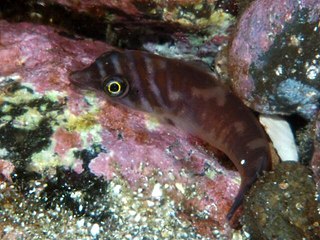
Aspasmichthys is a genus of clingfishes from the western Pacific Ocean.

Cercamia is a genus of fishes in the family Apogonidae, the cardinalfishes. They are native to the Pacific and Indian Oceans.
Egglestonichthys is a genus of gobies native to brackish and marine waters of the Indian Ocean and the western Pacific Ocean.
Feia is a genus of gobies native to shallow coastal waters of the Indian Ocean and the western Pacific Ocean.

Grallenia is a genus of fish in the family Gobiidae native to the western Pacific Ocean.
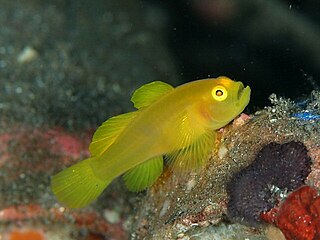
Lubricogobius is a genus of fish in the family Gobiidae found in the Pacific Ocean.
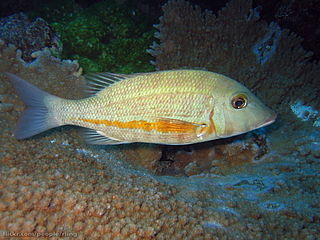
Lethrinus is a genus of emperors found from the eastern Atlantic Ocean through the Indian Ocean to the western Pacific Ocean.
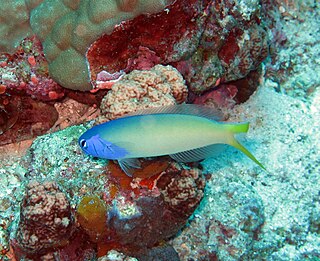
Hoplolatilus is a genus of tilefishes native to the Indian Ocean and the western Pacific Ocean. The chameleon tilefish (Hoplolatilus chlupatyi), also known as the flashing tilefish, is well known in particular in the aquarium hobby due to its unique ability to change colors in an instant with the help of specialized proteins in its skin that can reflect light in different wavelengths, allowing it to cycle between primary and secondary colors on the light spectrum.
Navigobius is a genus of fish in the family Microdesmidae native to the Indo-Pacific Ocean.

















